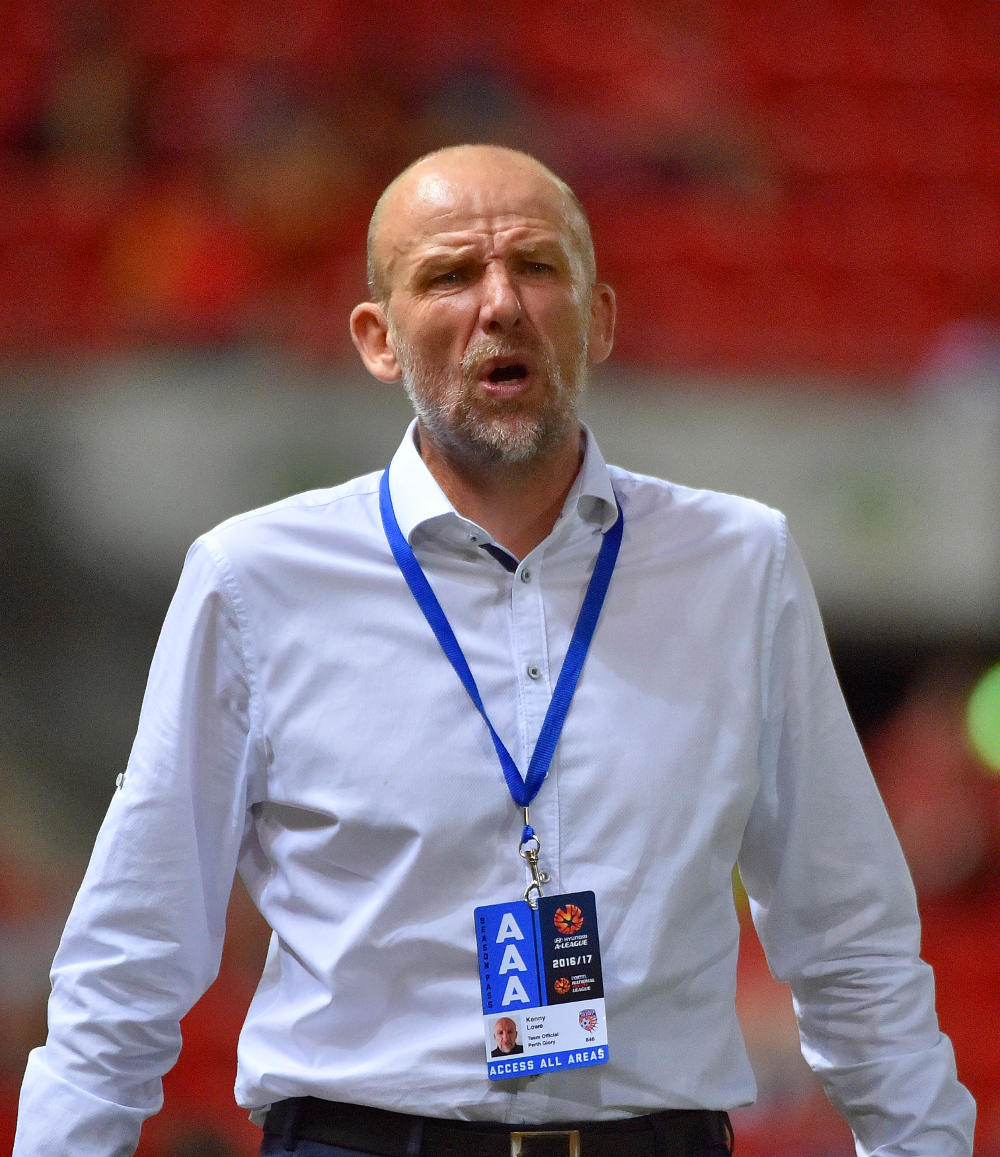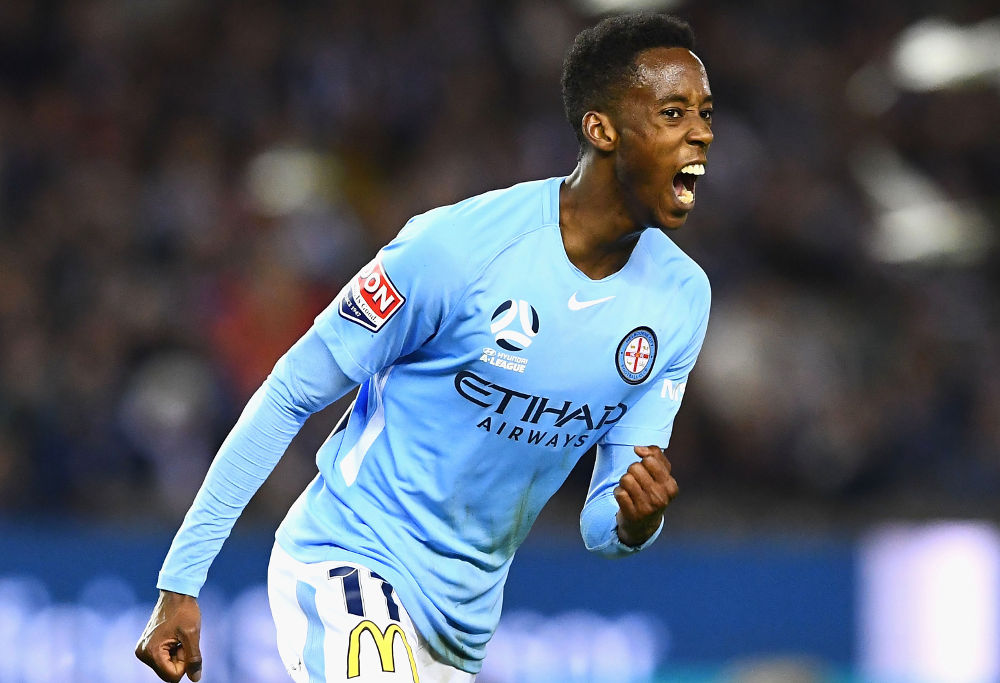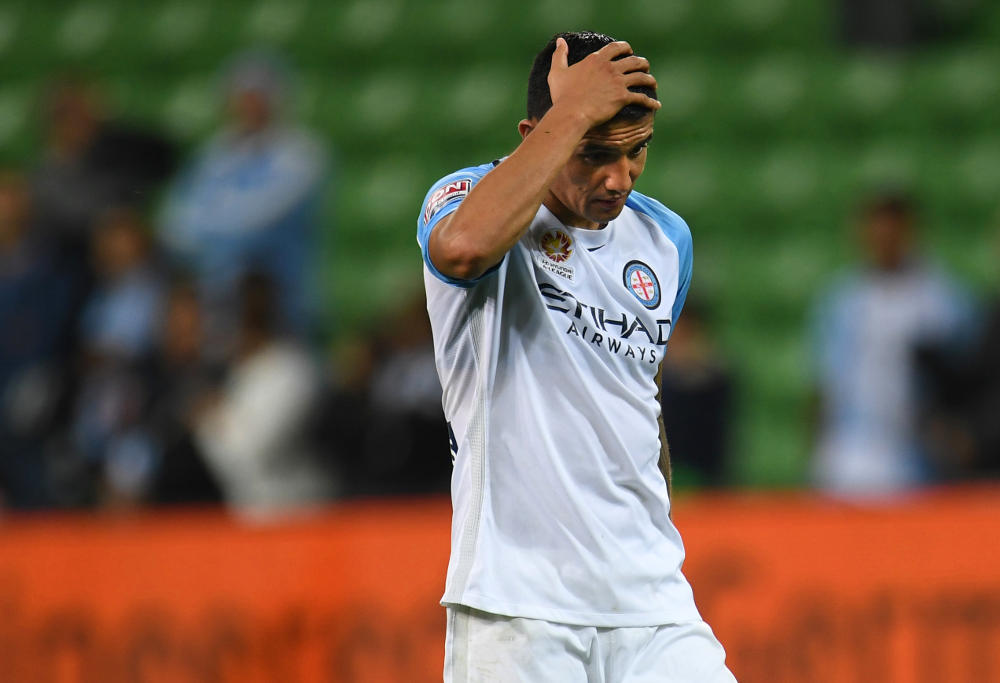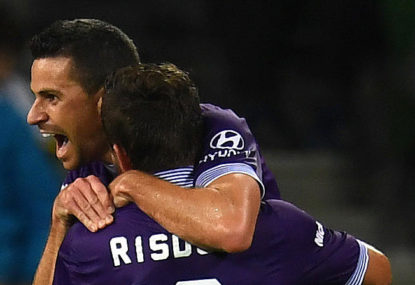The Glory towed in the worst goal difference in the league into last night’s match with Melbourne City.
In the three games since their 2-0 defeat to Sydney, a match in which a glaring systemic failing was identified, Perth have scored three goals and conceded seven, including shipping five against the Wellington Phoenix, the team currently propping up the competition. Just under half of Wellington’s entire goal haul so far this season was plundered in that single win over Perth.
Kenny Lowe is currently having to negotiate an injury glut, one that is hacking away at the pointy end of his team; Diego Castro and Adam Taggart are both injured, two-thirds of Perth’s attacking triumvirate. Most teams in this position, hamstrung and blunted, tend to retreat into a staunch formation, protecting their goal, until their crocked attackers recover; Melbourne City for instance, a team still waiting on the return of Bruno Fornaroli and Fernando Brandan, and with Marcelo Carrusca also out in this match.
City have the best defensive record in the league, and have kept a top three league position since round one. Their defence is stable enough to lean on. Perth’s is not, and Lowe was asked about how he would arrange his team in this match to compensate for their absentees;
“We’ll set up as we normally set up, with different personnel.” Kenny Lowe said, cracking wise about his current short-handedness. “It gives me a few sleepless nights, but I’m not going to damage my looks, am I?”

(AAP Image/David Mariuz)
Lowe, and then later Andy Keogh, spoke in very optimistic terms about how young the Perth team on the night was set to be. Youthful enthusiasm can be a very buoyant force, but it tends to be contained inside a delicate bladder, that can tear and flap horribly when punctured. Sending on kids against the most richly furnished club in the league, with no defensive scheme for them to rely on, and no superstar attackers to bail them out, was a bold strategy. In the minutes before kick off, a biblical storm rumbled over AAMI Park, a billowing canopy of deep, bruising violet.
16-year-old Jacob Italiano began the match twisting and turning on the ball, a bundle of frenetic energy with a pair of nice, soft feet. Perth’s youngsters were as keen as mustard, with lightning beginning to strike in the background. Keogh thwacked a volley from the edge of the box, and saw it spear just over the crossbar.
City, having shaped to send out a back three, actually had Nick Fitzgerald placed as the right-back in a back four, a point of potential weakness. Italiano tested him a number of times to begin the match.
City were sluggish, uninspired, almost stunned in the face of Perth’s vibrancy. A failed City foray forward ended with Italiano racing away on the counter, and the Melbourne players trotting lazily back to to defend it. The ball was played into Keogh, then rolled back to Mitch Nichols. His heavy deflected strike shot past Eugene Galekovic, who was given no chance to save it. Perth’s liveliness was rewarded, with City yet to even probe their defence.
The home team awoke, the smelling salts of an early concession enough to stir them. The match stretched out into end-to-end play, with both team making sharp incursions into the final third. Bruce Kamau flickered into relevance, Italiano and Nichols combined again. Memories of the 3-3 result between these teams from last season floated through the mind.

(Photo by Quinn Rooney/Getty Images)
Andy Keogh sent searing panic rippling across his manager’s brow, going down behind the play, apparently having pulled something. He soldiered on for another few minutes, but could not continue. The third prong of Perth’s attacking trident was lopped off, as Keogh limped away and Joseph Knowles jogged on. But just before that substitution occurred, Kamau was fouled in a promising position, just to the left of the Perth goal.
Ross McCormack stepped up and drilled the free kick past Liam Reddy. Lowe was incensed; the Keogh substitution, in his view, should have occurred before City won that foul. It was a wonderful strike from McCormack, his third successful free kick of the season. Parity then, and as the rain fell, a yellow card was raised for Lowe, still raging.
The next card raised – ten minutes later – was red, and it came as the result of an extraordinary interjection by the VAR system. Osama Malik, having slid in to try and clear the ball as it spun toward the feet of Italiano, caught the winger on the thigh as he shot wide. No fuss was made, no appeals were heard, and a goal kick was awarded.
The VAR was seen ticking over when play restarted, and the referee Daniel Elder then paused the match to review the footage on the VAR’s advisement. His decision was that not only was the incident worthy of a penalty – a reasonable conclusion – it was also worthy of a straight red card for Malik – far less clear-cut thing.
Italiano was on his knees when Malik made contact, so a question of height was redundant. Was it reckless? Perhaps, but in a strained situation inside his own box, Malik could hardly afford to go in without urgency. He trudged off, Xavi Torres converted the penalty and Perth were back in front. The half ended, with a ringing in the ears.
The break seemed to sedate Perth a little, with their numerical advantage both on the field and on the scoreboard reducing their desire to chase and press and pant with such eagerness. City took up control under these circumstances though, and forged a number of half-chances despite being a man down.
Tim Cahill was warming up on the sideline; for Perth, this game was not won yet. The white and purple shirts were founding wanting in 50-50 contests, seen dawdling in defence, and had lost all zip in attack. Melbourne, with 15 minutes remaining, had somehow held 67 per cent of possession in the second half, with ten men, albeit without really puncturing the Perth line. Cahill was substituted on for McCormack. Perth were retreating, packing bodies into the gut of their defensive third, stifling attacks with congestion alone.

Melbourne were pushing men forward, insofar as they could. A free kick was won, but it was underhit by Luke Brattan. The ball was cleared out to Nick Fitzgerald, the last man, and he fumbled over it, with Perth substitute Mitch Mallia pouncing on the situation. Mallia scampered away, with just Galekovic to beat. He slid the ball inside the far post, 3-1, and the points for Perth were secured.
This tends to be the rhythm Perth settle into over the season; a run of haphazard scorelines and bad results are punctuated by a performance of considerable energy and potency; they didn’t have much of the latter in this game, with their best attackers sidelined. But their first half effort, brimming with vim and led by their millennials, earned them this win.
The manner in which they defended their lead, almost totally passively against an outnumbered opponent, might have been punished by a team with a sharper cutting edge than City, who are wedged in four-game rut, with one point from their last 12 available.
Perth needed a deflection and a VAR gift to win this game, but tight margins and one-goal wins are preferable to 5-3 defeats and kamikaze football. “Sometimes kids play with no fear”, Lowe said after the match. Fears, at least, of Perth tumbling down the table have been allayed for now.
































































































